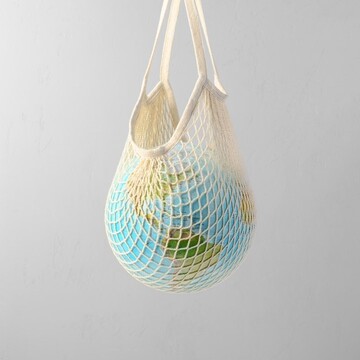How to be eco-friendly?| Use barter to give value your items
 14 Dec 2022
14 Dec 2022

Do not waste your goods and items. Use barter service to change your unused things with your dream items
Being environmentally conscious is not all about plastic bags; it’s about making everyday choices that will — quite literally — determine our success or failure as a species. We can be more conscious about reducing pollution, protecting wildlife, conserving natural resources and take other actions that can help slow the rate of climate change.
We need to reduce the amount of trash we create, and to reuse or repurpose consumer goods rather than throwing them away. United States is among the countries in the world that produce the most waste.
1. Recycle
Recycling conserves natural resources, reduces pollution and saves energy. Recycling involves sorting and cleaning up trash to produce "secondary materials" — mainly glass, paper, metal and plastic — for reuse in products. Recycled aluminum, for example, is a particularly valuable resource; manufacturing using recycled aluminum is 92% more efficient than when unused raw materials are used, according to the Aluminum Association.
2. Turn down the bag
Plastic bags pose ecological problems. They take hundreds of years to decompose and pose a particular threat to wildlife. Hundreds of thousands of marine mammals die every year after mistaking plastic bags, which are laced with chemicals, for food. Many animals get entangled in plastic bags and suffocate.
3. Buy only what you will use
Americans are huge consumers of cars, food, furnishings, household products, recreational equipment, and electronics — and we buy much more than we need with many of our consumer purchases getting very little use. Excessive personal consumption of goods means higher direct and indirect costs to the environment, including the energy used and pollution emitted in the extraction of natural resources, and in the manufacturing, transportation, and disposal of goods.
4. Buy second hand
Use eBay, Craigslist or other means to buy used items, particularly durable goods that are needed for a limited time, like nursery furniture. Second-hand goods can be nearly as attractive and often just as functional as brand new purchases, and giving a household item a second life cuts its carbon footprint in half. A third or fourth life is even better.
5. Use bartering
Use bartering to get rid of your current item and get the other ones that you want. It will help you to save your money, also it has a lot of advantages for ecology.
